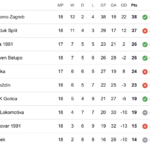As reported by Index, the president of the Croatian Cardiology Society, explained: “One more test will be added to the systematic examination for enrollment in the first grade of primary school, and that is the total value of cholesterol in the blood.” Hereditary, so-called familial hypercholesterolemia implies exposure to pathologically high concentrations of atherogenic cholesterol from early childhood. Therefore patients with this metabolic disease have a tenfold more significant risk of premature cardiovascular incidents.
20,000 people affected
It is estimated that around twenty thousand people in Croatia suffer from such a disorder of fat metabolism, and only one percent of them are recognised. Screening of children was supposed to start this school year, but due to technical reasons, it was postponed until the next school year.
If elevated cholesterol is found, the child will be referred to a pediatrician, and therapy will begin if the diagnosis is confirmed. Treatment is most effective if it starts as early as possible so that patients can have the same number of healthy years and life expectancy as those without the disease.
People suffering from untreated hereditary hypercholesterolemia often suffer from a heart attack or stroke between the ages of 35 and 45 and therefore live significantly shorter lives than the average population.
This concerns patients with the so-called heterozygous form of the disease, which occurs in about 1:300 people. A much rarer and much more malignant is the so-called homozygous hypercholesterolemia, in which, without treatment, patients fall ill and die as a result of atherosclerosis as early as adolescence. When a diagnosis is made during the systematic examination of a preschool child, the school medicine doctor will inform the family doctor about it. They will then perform the so-called reverse cascade screening, i.e., investigate the existence of familial hypercholesterolemia in the affected child’s parents, brothers, sisters, or closest relatives.
A parent is a transmitter
Such screening can save the child’s parents, one of whom is undoubtedly a carrier of this disease and at the same time suffers from, most often unrecognised, familial hypercholesterolemia. Detecting and treating sick parents and other close relatives, treatment will begin and thus prevent or delay the most dangerous complications of advanced atherosclerosis.
Miličić points out that this is a very important national project that will improve the cardiovascular health of many families and save many lives in the foreseeable future. Given that an average of 30,000 children are enrolled in the first grade of primary school, it is expected that a hundred children in one generation could be diagnosed with this disorder.
Miličić announced the introduction of the new screening at last week’s symposium in Zagreb, organised by the World Federation of Cardiology and the Croatian Society of Cardiology. The seminar gathered leading domestic cardiologists who, just after the world premiere, got acquainted with the new procedure for controlling elevated cholesterol.
Other important topics were also touched upon, such as reducing the intake of table salt, the obesity pandemic, and diabetes. It was pointed out that Croats are currently the fattest European nation, and obesity represents a significant independent risk for cardiovascular diseases and many others.
Miličić asserted that Croatia, with a share of cardiovascular mortality of 37 percent in total mortality, with more than 22,000 deaths from these diseases per year, still belongs to countries with a high cardiovascular risk in Europe.
For more, make sure to check out our dedicated Lifestyle section.








